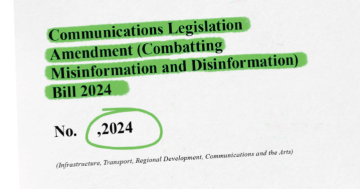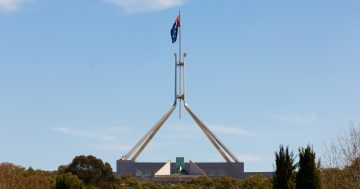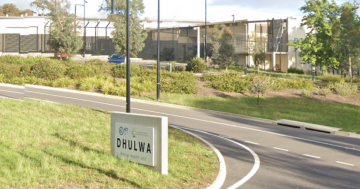
Attorney General Mark Dreyfus is seeking to criminalise doxxing. Photo: File.
The malicious sharing of personal data online could attract a seven-year jail term if the Federal Government gets its way with new laws it is seeking to install.
Attorney-General Mark Dreyfus introduced what he described as “landmark legislation” to strengthen privacy protections for all Australians and outlaw the practice known as doxxing.
Mr Dreyfus said strong privacy laws were essential to Australians’ trust and confidence in the digital economy and digital services provided by governments and industry. He said it was time to get tough on those who sought to abuse personal data.
“Australians have a right to have their privacy respected and when they are asked to hand over their personal data they have a right to expect it will be protected,” Mr Dreyfus said.
“The malicious release of personal data online is something that ought to be criminalised.”
The Privacy and Other Legislation Amendment Bill 2024, introduced to Federal Parliament by Mr Dreyfus, seeks to impose a maximum of six years’ jail for publishing private details with the intent of causing harm.
The details could include names, addresses and telephone numbers, if they are published with ill intent.
The maximum penalty will be set one year higher to seven years if the person (or group) being doxxed is targeted because of race or ethnic origin, religion, sex, sexual orientation or disability.
The bill also gives victims the right to sue perpetrators for damages.
Mr Dreyfus said the Privacy Act 1988 had not kept pace with changes in the digital world.
He said recent large-scale data breaches, including sensitive personal information exposed by criminals, were distressing for millions of Australians.
“Following previous data breaches the Albanese Government acted swiftly to significantly increase penalties under the Privacy Act for serious or repeated privacy breaches and give the Office of the Australian Information Commissioner (OAIC) improved and new powers,” Mr Dreyfus said.
“The Privacy and Other Legislation Amendment Bill 2024 represents a significant step forward in the government’s commitment to bring the Privacy Act into the digital age.”
In addition to criminalising doxxing, the bill would implement a first tranche of agreed recommendations from the Privacy Act Review. These include the new statutory tort to address serious invasions of privacy and the development of a Children’s Online Privacy Code to better protect children from a range of online harm.
This is supported by an additional $3 million over three years for the OAIC to develop the code.
Greater transparency for individuals regarding automated decisions that affect them; streamlined information sharing in the case of an emergency; and stronger enforcement powers for the AOIC are included in the legislation.
Measures in the bill build on steps already taken on privacy, such as increasing penalties for repeated or serious privacy breaches; and giving greater powers for the Australian Information Commissioner to resolve privacy breaches and quickly share information about data breaches.
“The government is committed to ensuring the Privacy Act works for all Australians and is fit for purpose in the digital age,” Mr Dreyfus said. “This legislation is just the first stage of the government’s commitment to provide individuals with greater control over their personal information.
“We will continue targeted consultations with industry, small business, the media, consumer groups and other key stakeholders on draft provisions to ensure we strike the right balance between protecting people’s personal information and allowing it to be used and shared in ways that benefit individuals, society and the economy.
“The Australian people expect greater protections, transparency and control over their personal information and this legislation begins the process of delivering on those expectations.”
Communications Minister Michelle Rowland also has legislation to give the Australian Communications and Media Authority (ACMA) new powers to hold digital platforms to account and improve efforts to combat seriously harmful misinformation and disinformation.
“Misinformation and disinformation pose a serious threat to the safety and wellbeing of Australians, as well as to our democracy, society and economy. Doing nothing and allowing this problem to fester is not an option,” she said.
“The government is committed to keeping Australians safe online, and that includes ensuring the ACMA has the powers it needs to hold digital platforms to account for misinformation and disinformation on their services.
“Following public consultation on the draft bill last year, revisions have been made that carefully balance the public interest in combatting seriously harmful misinformation and disinformation with the freedom of expression that is so fundamental to our democracy.”





















